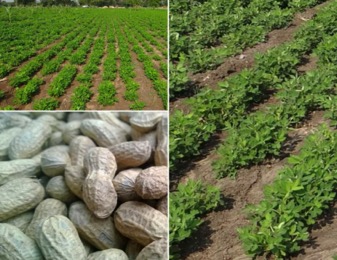
Gambia’s groundnut has been banned in Europe and as a result, it is being exported to China, where it is used to feed birds and animals. Many international bodies and health experts have warned against aflatoxin, stating it is not for human consumption.
Permanent secretary at the Ministry of Trade, Lamin Dampha, in an interview with this medium, revealed that over the years, Gambia’s groundnut market has been been affected by aflatoxin.
“We are not accessing the European market with our groundnut, instead are going to China. Is not fetching the money we want because China is a bigger market but it’s not as lucrative as Europe. Europe is a high-income market and if we are able to export to Europe as we used to in the past, we will receive good export than what we are receiving today.”
“In China, our groundnut is mostly used for bird and animal feed. With the current investment in agriculture and the agenda of Gambia Groundnut Corporation, it’s likely that we will be able to deal with aflatoxin in the future.”
Responding to the question on how low agricultural productivity affected our trade, PS Dampha said low production is a challenge, saying The Gambia has lots of market access but to utilise those markets, accesses is a challenge because the country is not producing much.
He reiterated that the government is focusing a lot on agriculture in terms of increasing our export capacity. Over the years, he added, The Gambia focused more on groundnut export and horticulture, including foods and vegetables.
Samba Gaye, a farmer and resident of Munyagen in the North Bank Region (NBR) told this medium that aflatoxin is disturbing them and needs an urgent solution. He added that it is quite frustrating for a farmer who has no other source of income to always give his/her harvest at a very low value.
“Sometimes the government will take our groundnuts and delay the payment. We have no choice but to give it to them because that’s where our hopes lie to feed our families. Some of our groundnuts ended up spoiling last year because the government was not buying them as expected.”
He called on the government to double up efforts in finding solutions to aflatoxin and increase the groundnut value, adding the fertiliser is costly and some farmers couldn’t afford it.
Francis Beyai, OIC of the Quality Control Department at the Defunct Gambia Groundnut Corporation (GGC), now National Food Security, Processing and Marketing Corporation, explained that aflatoxin has been a primary cause of depreciation in our groundnut value. He said the European market is more lucrative and advantageous for The Gambia than the Chinese.
“Not sending our groundnuts to the European markets means we are losing trade value. Looking for a better market is good but we know Europe is a no-go area and we cannot preserve our groundnuts here, so we have to send them to China.”
He said there could be an alternative to fight the aflatoxin, adding they introduced aflasafe, a bio-production that mitigated the aflatoxin in our groundnuts. Beyai continued that the bio-product was applied between 2013 and 2014 and a good, significant result was had.
“If aflasafe could have been used, then we will return to European markets. It is believed that aflatoxin causes cancer and lots of other illnesses. Health wise it’s not advisable for consumption.”
He reiterated that it will be difficult for the country to eradicate aflatoxin because the aflasafe is no more used in The Gambia, adding lots are in Senegal and is purchasable if the government is committed.





